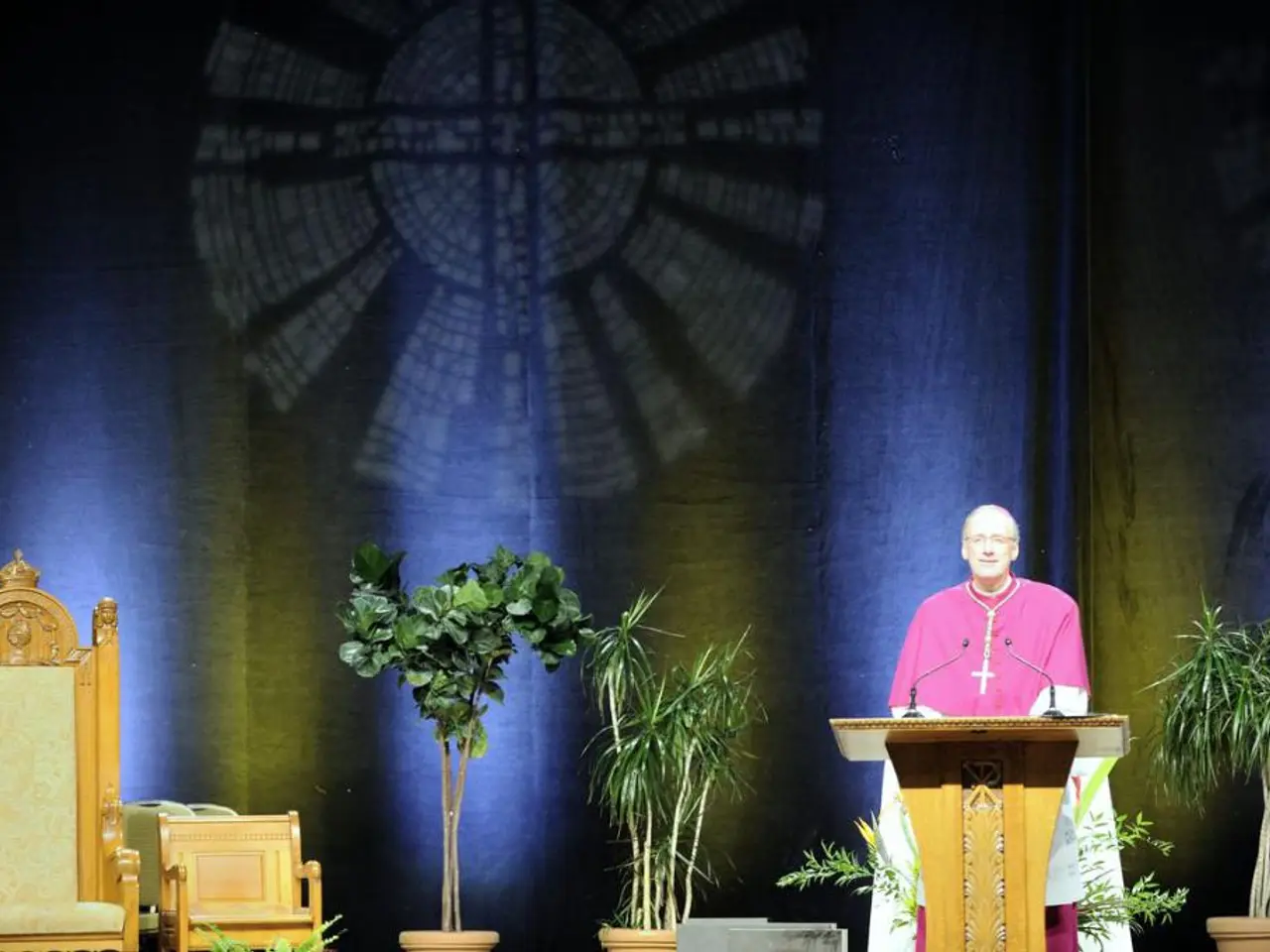Nuclear weapon opponents among Japan's elderly bomb survivors voice their concerns
Elderly Survivors of Nagasaki and Hiroshima Bombings Advocate for Nuclear Disarmament
In the aftermath of the devastating atomic bombings of Hiroshima and Nagasaki, a group of elderly survivors, known as hibakusha, have taken it upon themselves to share their personal experiences and advocate for nuclear disarmament. These survivors, despite their advanced age and health challenges, feel a strong responsibility to ensure their experiences are not forgotten and to prevent future nuclear attacks.
One such survivor is Kunihiko Iida, an 83-year-old survivor of the Hiroshima bombing, who has dedicated his retirement to telling his story as a means of advocating for nuclear disarmament. Iida volunteers as a guide at Hiroshima's Peace Memorial Park, educating foreign visitors about the horrors of nuclear weapons. Encounters with survivors like Iida have a profound impact on visitors, making the tragedy more tangible and "like sharing a little piece of history," according to a French visitor.
Another survivor, Fumiko Doi, an 86-year-old survivor of the Nagasaki bombing, narrowly escaped death due to a train delay. Doi was 5 kilometers (3 miles) away from the Nagasaki hypocenter at the time of the bombing. Nearby passengers covered Doi for protection during the bombing, but her family members experienced radiation-related health issues, including her mother, two brothers, and two sisters. Doi began speaking out against nuclear weapons after witnessing the 2011 Fukushima Daiichi nuclear disaster.
Katsumi Takahashi, a 74-year-old volunteer guide, expressed concern about Japanese youth ignoring their own history. Takahashi believes that the only path to peace is the abolition of nuclear weapons.
These survivors have been actively advocating for nuclear disarmament by sharing their personal testimonies widely, including speaking at schools, international conferences, the United Nations, and through volunteering as guides at the Hiroshima Peace Memorial Park to educate foreign visitors. Their advocacy aims to raise awareness about the catastrophic human consequences of nuclear weapons and to urge global leaders to abolish them.
Their efforts have had a powerful emotional and educational impact on foreign visitors, deepening the understanding of nuclear devastation beyond abstract political discourse and spurring support for nuclear disarmament. Visitors to Hiroshima and Nagasaki peace museums have increased, with about one third coming from abroad, following the 2023 Hiroshima G7 meeting and the Nobel Peace Prize awarded to the grassroots survivors' group Nihon Hidankyo.
In addition to their advocacy efforts, hibakusha also engage in memorial events, such as Nagasaki’s annual commemoration, and align with international movements. Their efforts helped inspire and support the Treaty on the Prohibition of Nuclear Weapons (TPNW), adopted in 2017, which holds special significance for hibakusha though Japan has not signed it.
References: [1] The Guardian, 2021, "Hiroshima bombing: 'I want to tell my story before I die,' says 83-year-old survivor". Link [2] The Asahi Shimbun, 2022, "Hibakusha speak out against nuclear weapons: 'I want to convey the reality to the world'". Link [3] The Japan Times, 2021, "Hibakusha's call for nuclear disarmament: 'We must tell our stories'". Link
- The hibakusha, elderly survivors of the Nagasaki and Hiroshima bombings, have used their personal experiences to advocate for the global prohibition of nuclear weapons.
- Kunihiko Iida, an 83-year-old survivor of the Hiroshima bombing, promotes nuclear disarmament by sharing his story with foreign visitors at Hiroshima's Peace Memorial Park.
- Fumiko Doi, an 86-year-old survivor of the Nagasaki bombing, focuses on raising awareness about the effects of nuclear weapons through her advocacy, particularly after witnessing the Fukushima Daiichi nuclear disaster.
- Volunteer guide Katsumi Takahashi is concerned about Japanese youth disregarding their nation's history, emphasizing that the only path to peace lies in nuclear disarmament.
- Hibakusha contribute to the world's understanding of nuclear devastation by speaking at schools, international conferences, the United Nations, and participating in memorial events such as Nagasaki’s annual commemoration. Their efforts, coupled with increasing numbers of visitors to peace museums, have intensified support for nuclear disarmament initiatives, such as the Treaty on the Prohibition of Nuclear Weapons (TPNW).




